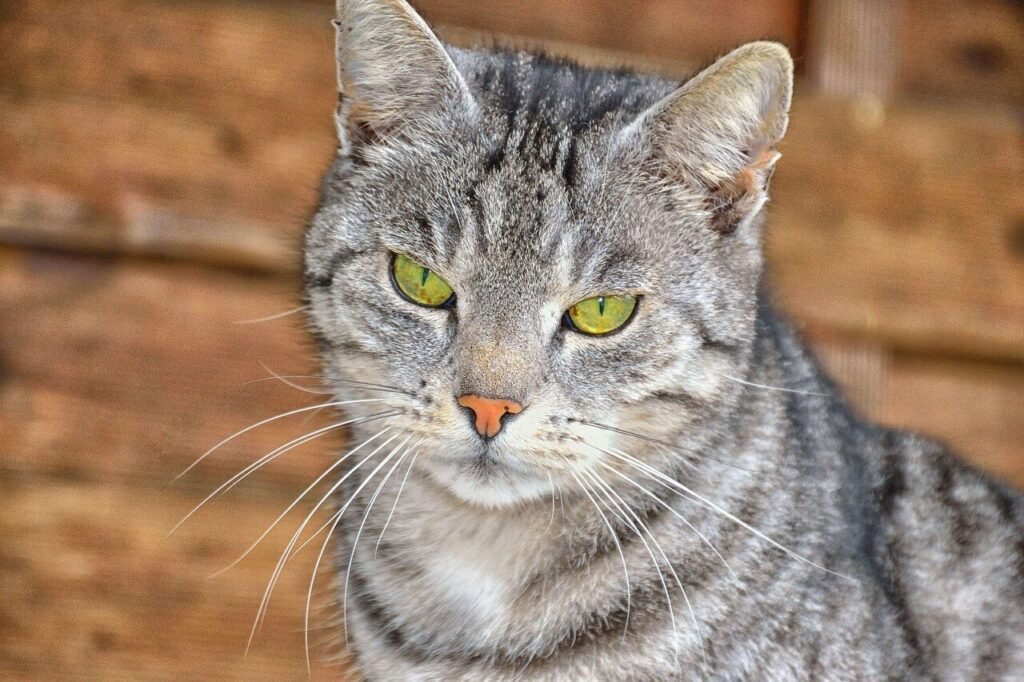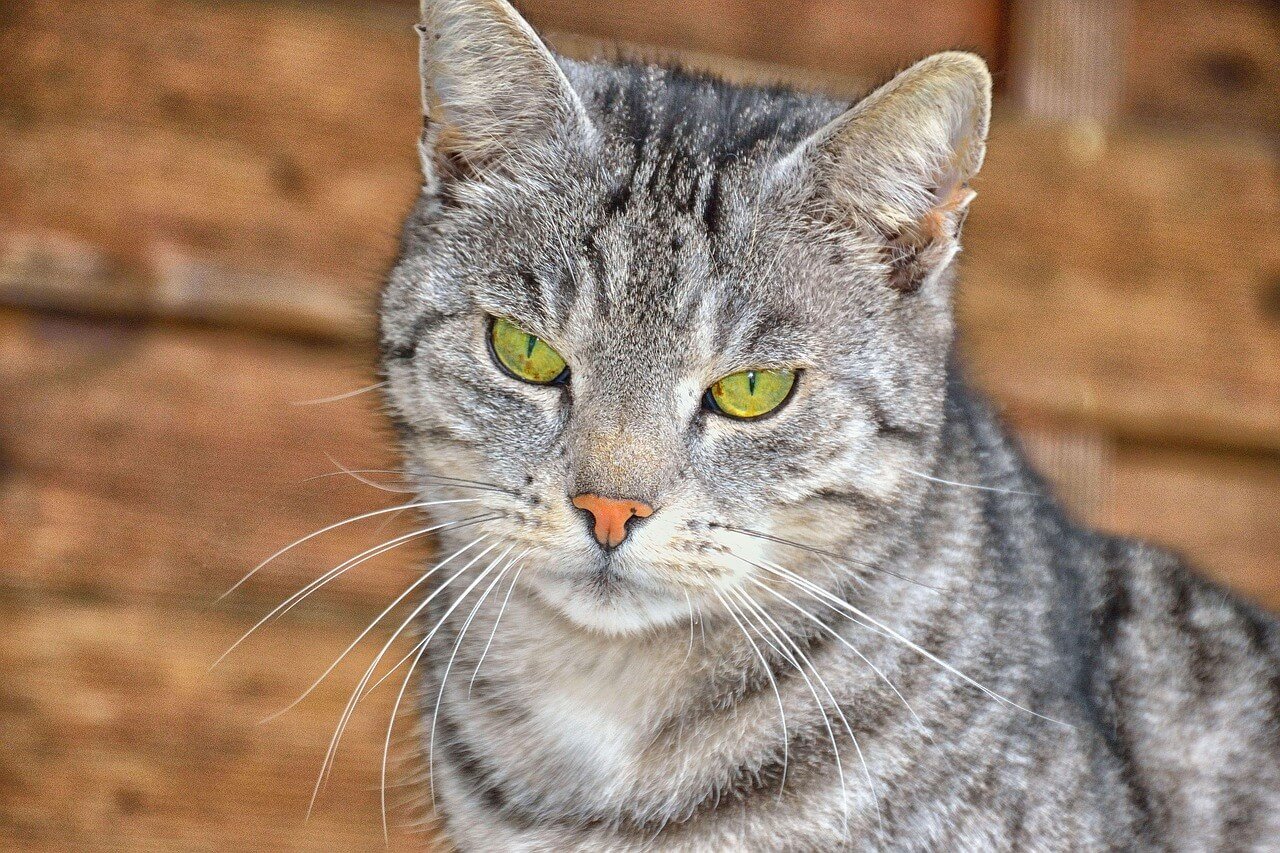Why Does My Cat Not Purr?
Purring is often seen as one of the most endearing and comforting behaviors cats exhibit. It’s a sound many associate with contentment, affection, and relaxation. But what happens when your cat doesn’t purr? While some cats purr frequently, others may rarely—or never—make this soothing sound. This can leave cat owners wondering if something is wrong or if their feline friend simply has a different way of expressing themselves. In this blog post, we’ll explore the reasons behind why some cats don’t purr, how to interpret their behavior, and what you can do to better understand your unique companion.
Possible Reasons Why Your Cat Doesn’t Purr
If your cat doesn’t purr, it doesn’t necessarily mean there’s an issue. Cats are individuals, and their purring habits can vary widely. Here are some common explanations for why your cat might not purr.
Personality Differences:
Just like humans, cats have unique personalities. Some are naturally quieter and less inclined to purr, even if they’re perfectly happy.Past Trauma or Stress:
Cats that have experienced trauma or stress in their lives may be less likely to purr as a result of emotional scars.Health Concerns:
Certain medical conditions, such as respiratory issues or laryngeal problems, can affect a cat’s ability to purr.Lack of Habit Formation:
Some cats may not have learned to purr as kittens, especially if they were separated from their mother too early.Alternative Forms of Communication:
Cats communicate in many ways beyond purring, such as through body language, meowing, or kneading.
Understanding these possibilities can help you determine whether your cat’s lack of purring is simply part of their personality or if further investigation is needed.

How to Encourage Your Cat to Purr
If you’d like to encourage your cat to purr, there are several ways to create a relaxing environment that fosters positive interactions. These tips can help bring out this comforting behavior.
Provide a Safe Space:
Ensure your cat has a quiet, cozy area where they feel secure and free from stress.Engage in Gentle Playtime:
Use soft toys or interactive play to bond with your cat and put them at ease.Offer Comforting Touches:
Gently stroke areas your cat enjoys, such as behind the ears or along their back, to promote relaxation.Use Calming Sounds:
Playing soft music or white noise can create a soothing atmosphere that encourages purring.Reward Positive Behavior:
Offer treats or praise when your cat shows signs of contentment, reinforcing their natural instincts.
By creating a nurturing environment, you can increase the likelihood of hearing those cherished purrs.
Check this guide 👉 The Art of Cat Napping: Best 7 Expert Tips!
Check this guide 👉 What Does It Mean When a Cat Wags Its Tail? Best 7 Tips!
Check this guide 👉How to Give a Cat a Bath: Best 7 Expert Tips!
Signs Your Cat Is Happy (Without Purring) | Ways to Bond Without Expecting Purring |
|---|---|
Slow blinking during interactions | Spend quality time grooming your cat |
Kneading on blankets or laps | Engage in interactive play sessions |
Tail held high with a slight curve at the tip | Offer treats or favorite snacks |
Rubbing against furniture or people | Provide scratching posts and climbing trees |
Relaxed posture while lounging | Speak softly and use reassuring tones |
Other Ways Cats Express Affection and Contentment
While purring is a well-known sign of feline happiness, it’s far from the only way cats show their feelings. Understanding these behaviors can deepen your connection with your pet.
Slow Blinking:
A slow blink is often referred to as a “cat kiss” and indicates trust and affection. Return the gesture to strengthen your bond.Kneading:
Kneading is a behavior rooted in kittenhood that signifies comfort and security. It’s a clear sign your cat feels safe around you.Head Bunting:
When your cat rubs their head against you, they’re marking you as part of their territory—a sign of deep attachment.Following You Around:
Cats that trail after their owners are showing curiosity and a desire for companionship.Grooming You:
Licking or nibbling on your skin or hair is a sign of affection and acceptance within their social circle.
Recognizing these behaviors helps you appreciate the unique ways your cat communicates love and contentment.
When to Consult a Veterinarian About Lack of Purring
While a lack of purring isn’t always cause for concern, certain signs may indicate underlying health issues. If you notice any of the following, it’s best to consult your veterinarian.
Changes in Eating Habits:
A sudden loss of appetite or difficulty eating could signal pain or illness affecting their ability to purr.Weight Loss or Gain:
Unexplained changes in weight might point to metabolic or digestive problems that impact overall behavior.Labored Breathing or Coughing:
Respiratory issues can interfere with a cat’s ability to produce sounds, including purring.Lethargy or Withdrawal:
If your normally active cat becomes unusually withdrawn or uninterested in activities, it could indicate discomfort.Visible Signs of Pain:
Hunched posture, excessive grooming of specific areas, or vocalizations during movement may suggest physical ailments.
Addressing potential health concerns ensures your cat remains comfortable and thriving.
The Science Behind Purring
Purring is more than just a cute sound—it has fascinating physiological and psychological benefits. Understanding its origins sheds light on why some cats may not purr.
Vocal Cord Vibrations:
Purring occurs when a cat’s brain sends signals to their laryngeal muscles, causing vibrations as they breathe in and out.Self-Soothing Mechanism:
Cats often purr to calm themselves in stressful situations, such as visiting the vet or recovering from injury.Bonding Tool:
Kittens begin purring shortly after birth to communicate with their mother, strengthening familial bonds.Healing Properties:
Studies suggest that the frequency of a cat’s purr can promote healing and reduce pain in both cats and humans.Silent Purring:
Some cats appear to “purr silently,” meaning they go through the motions but produce no audible sound.
Learning about the science behind purring can help you appreciate its complexity—and why some cats may choose not to engage in it.
Building Trust with a Non-Purring Cat
Building trust with a cat that doesn’t purr requires patience and consistency. These steps can help strengthen your relationship over time.
Respect Their Boundaries:
Allow your cat to approach you on their terms, avoiding forced interactions that might make them uncomfortable.Use Positive Reinforcement:
Reward your cat with treats, toys, or praise whenever they display affectionate behaviors.Maintain a Routine:
Cats thrive on predictability. Establishing a daily routine helps them feel secure and reduces anxiety.Monitor Body Language:
Pay close attention to subtle cues like ear position, tail movement, and facial expressions to gauge their mood.Be Patient:
Trust takes time to develop, especially with cats who may have had difficult pasts. Celebrate small victories along the way.
With consistent effort, you can build a strong, trusting relationship regardless of whether your cat purrs.
Fun Facts About Purring
Purring is a remarkable phenomenon that continues to intrigue scientists and cat lovers alike. Here are some fun facts about this unique behavior.
Not All Cats Purr Loudly:
Some cats are known as “quiet purrers,” producing barely audible vibrations despite being content.Big Cats Can’t Always Purr:
Unlike domestic cats, larger felines like lions and tigers roar instead of purring due to differences in their vocal anatomy.Cats Purr for More Than Happiness:
Cats also purr when they’re scared, in pain, or seeking comfort, making it a versatile form of communication.Humans Benefit Too:
Listening to a cat purr has been shown to lower stress levels and improve cardiovascular health in humans.Purring Frequencies Vary:
The pitch and rhythm of a cat’s purr can differ based on their age, breed, and emotional state.
These intriguing insights highlight the complexity of purring and its importance in feline behavior.
Frequently Asked Questions About Cats and Purring
Why do some cats purr louder than others?
Cats have different purring volumes based on their anatomy and personality. Some are naturally quieter, while others have a more audible purr.
Can cats purr while sleeping?
Yes, many cats purr softly while sleeping, especially if they’re deeply relaxed.
Does purring always mean a cat is happy?
Not necessarily. Cats also purr when they’re anxious, in pain, or seeking comfort.
Do all cats purr?
No, not all cats purr. Some rely on other forms of communication, such as meowing or body language.
Should I worry if my cat never purrs?
Only if other unusual behaviors accompany it. Otherwise, it’s likely just part of your cat’s unique personality.
Embracing Your Cat’s Unique Personality
Every cat is different, and their lack of purring doesn’t diminish the joy and companionship they bring to our lives. Whether your feline friend expresses affection through purrs, head bunts, or playful antics, their unique ways of communicating are a testament to their individuality. By observing their behaviors, providing a loving environment, and addressing any concerns promptly, you can ensure your cat feels safe, happy, and cherished. Remember, the absence of purring doesn’t mean the absence of love—your bond with your cat speaks louder than words (or sounds).
Do Cats Have Taste Buds? Best 7 Expert Tips! – Discover how cats experience flavors and why their taste is so unique.
Do Dogs Have Taste Buds? Best 7 Expert Tips! – Discover how dogs experience taste, their preferences, and what it means for their diet and health.
Can Cats Taste Sweet? Best 7 Expert Tips! – Discover why cats can’t taste sweetness, how it affects their diet, and tips to keep them healthy and happy.
Can Dogs Taste Sweet? Best 7 Expert Tips! – Discover how dogs perceive sweetness, which foods are safe, and tips to manage their sweet cravings responsibly.





